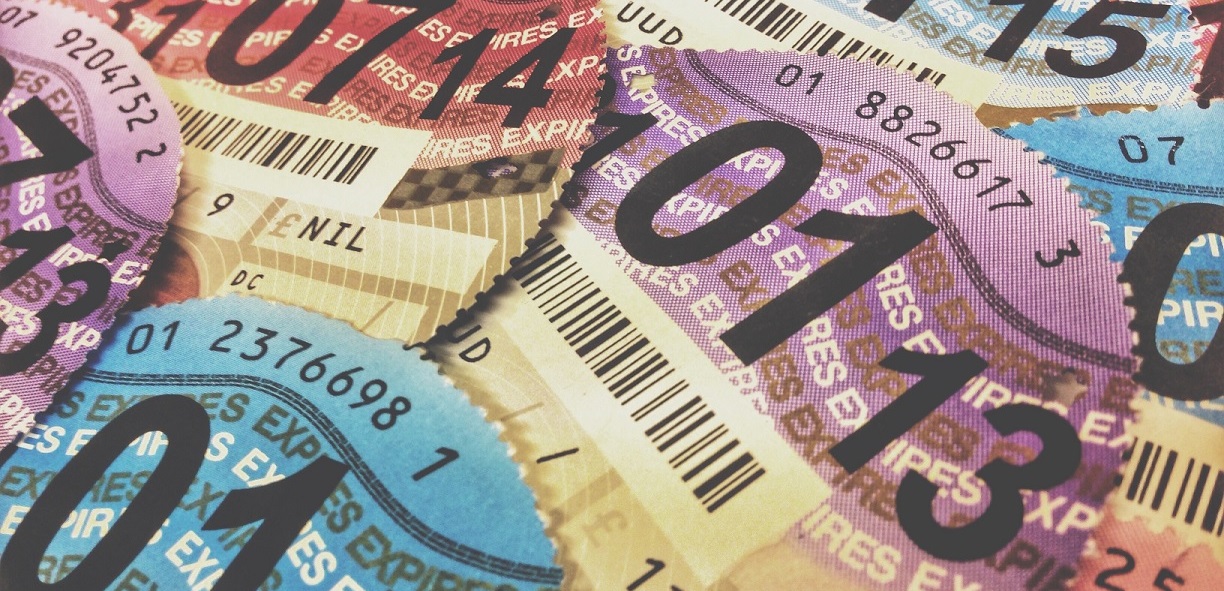As of the 1st of October 2014 you will no longer have to display a paper tax disc in your vehicle. However, alterations to the vehicle tax system go deeper than just removing a piece of paper. Find out how this will affect you here.
What is happening to vehicle tax discs?
Since 1921 it has been a legal requirement to display a tax disc in vehicles used on public roadways. However, after 93 years of faithful service the tax disc is no longer required to be displayed in the windscreens of cars nationwide. This means that, from the 1st of October, no more tax discs will be issued. If you have a tax disc with months remaining there will be no requirement for you to display it either.
However, you will still be charged car tax.
How will the new car tax system work?
The DVLA now has a complete digital record of all payments made. From this they can track what vehicles do and do not have tax. They can even issue notices and fines via the database. This makes the paper tax disc surplus to requirement.
This digital database also works with automatic number plate recognition (ANPR) cameras that track vehicles on the roads and send an alert if they spot an untaxed vehicle. Police and other enforcement agencies can also run checks on the spot using this system, eliminating the need to check paper discs.
How can I tell if I’m driving an untaxed vehicle?
Of course, when it comes to checking vehicle tax you don’t have access to ANPR cameras or the digital database. For example the lack of paper disc may cause concern when it comes to hire cars. However, you can instantly check any vehicles tax on the gov.uk site here.
What about when I want to sell my car?
Although the switch from paper discs to digital records has grabbed the most headlines other changes are underway. For example, transfer of tax from seller to buyer when vehicles change hands will be scrapped.
As of the 1st of October, rather than transferring paid tax to the new vehicle owner the seller will receive a refund on any tax paid in advance. However, this will only apply to full calendar months you have remaining. So if you sell your car on the 1st of November you’ll miss out on the whole month’s back payment.
You must also tell the DVLA if you sell your car. If you fail to do so you could be stung with a £1,000 fine. In addition to that you will still be held responsible for taxing the vehicle you have sold and will also be accountable for any fines the new owner could accrue.
What about when I want to buy a car?
It’s not just sellers that are going to be subjected to new laws. After the 1st of October anyone buying a vehicle will be required to tax it before they drive it home. This is important to remember as the penalty for driving without tax is a fine of up to £1,000 or 5 times the annual road tax fee, whichever is greater.
Although this may seem like a barrier to sale the new buyer can go online to the DVLA website or use its 24-hour automated call service to tax the vehicle immediately. It would be wise to factor in the cost of taxation to any new car you buy at the point of purchase.
What about paying my car tax?
In addition to an alteration in the way car tax is processed there will also be a change in how people can pay.
As of the 1st of November you’ll be able to pay for your car tax in monthly instalments by direct debit. This is in contrast to the current method of buying in instalments of either six or twelve months up front.
However, just like currently paying in six month chunks you will be charged for the convenience of monthly instalments. From the 1st of November drivers buying tax bi-annually or monthly will be charged an additional 5%. This may seem extortionate but it is in fact a decrease from the 10% you can currently be charged for a 6 month payment.
To find out more information on the changes visit the gov.uk site.
Image two source: Wikipedia

